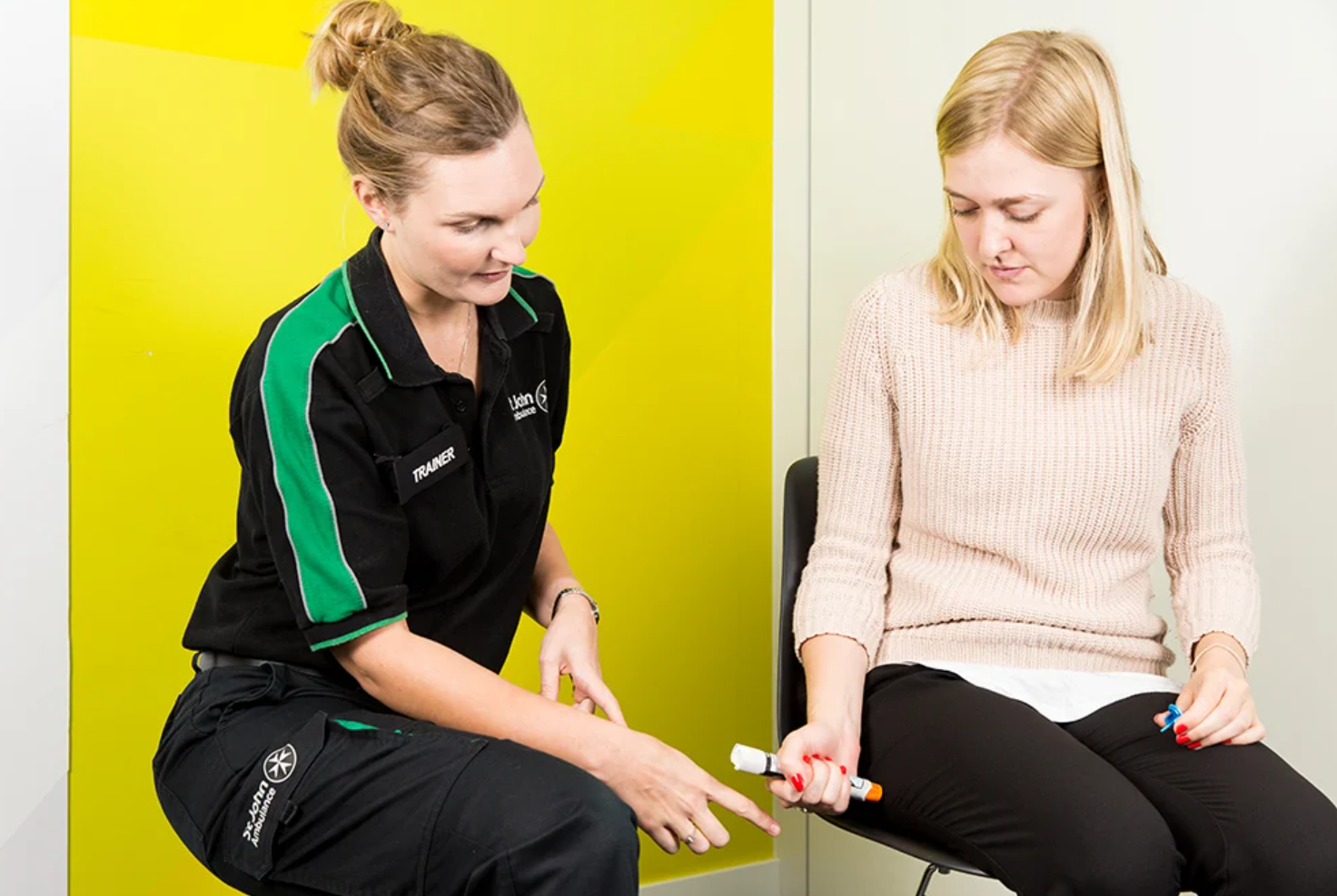12 August 2022: Experts are warning of a rise in the number of pests, such as wasps, as concurrent heatwaves provide perfect conditions for breeding. With increasing numbers of insects expected to swarm the country, the risk of being bitten or stung is also set to increase.
St John Ambulance is advising anyone with known allergies to bites and stings to be prepared by ensuring they have the right medication with them, such as an epi-pen or antihistamines, when spending time outside.

While bites and stings reactions are typically mild and can usually be managed at home, for others they can be severe, causing intense swelling and irritation.
A severe allergic reaction, also known as anaphylaxis, can develop in just seconds and can affect the whole body. If not treated quickly enough, it can be fatal.
Signs of a severe allergic reaction include swelling of the neck, face and tongue and difficulty breathing. You must call 999/112 immediately for help.
Dr Lynn Thomas, St John Ambulance’s medical director, has this advice:
During the warm weather, many of us will be out making the most of our time with our friends and families outside. Just like our warm weather advice, prevention is better than cure, so you can reduce your risk of being stung by taking some simple measures, such as wearing light-coloured clothing, avoiding perfumed hygiene products and avoiding flowering plants where possible.
If you experience a mild reaction, this can usually be managed at home with over-the-counter antihistamine medications and bite creams—pharmacists will be able to give advice if you need it. They can recommend the best medication and topical treatments for you, especially if you are taking any other medications.
Sometimes a sting can be left in the skin, when this happens, it’s important not to remove the sting by hand as you can push venom further into the skin. Instead, take a credit card or similar, brush or scrape it sideways as quickly as you can to remove it.
However, if you know you’re allergic to bites and stings, it’s important to be prepared by ensuring you’ve taken the correct dose of your prescribed medication and keeping both your epi-pens with you when going outside.
Making sure the people you’re with know where your epi-pens are and how to use them in case you’re unable to use them yourself is also recommended.
First Aid Advice from St John Ambulance: How to Spot an Allergic Reaction
Look for:
- Red, itchy rash, or raised area of skin (weals)
- Red, itchy, watery eyes
- Swelling of hands, feet, or face
- Abdominal pain, vomiting, or diarrhoea
There may also be:
- Difficulty in breathing
- Swelling of tongue and throat with puffiness around eyes
- Confusion and agitation
- Signs of shock leading to collapse and unresponsiveness.
What to do
- Call 999 or 112 straight away and tell ambulance control that you suspect a severe allergic reaction.
- If someone is having a severe allergic reaction, then they may have medication, like an auto-injector. This is a pre-filled injection device containing adrenaline which, when injected, can help reduce the body’s allergic reaction.
- Check if they have one, and if they do, help them to use it or do it yourself following the instructions.
- Help them to get comfortable and monitor their breathing and level of response.
- Repeated doses of adrenaline can be given at five-minute intervals if there is no improvement or the symptoms return.

